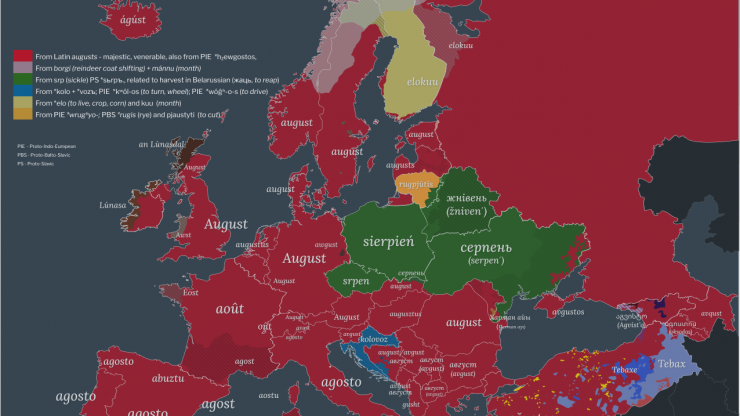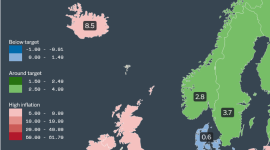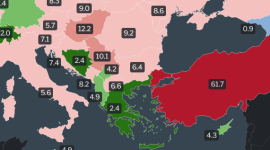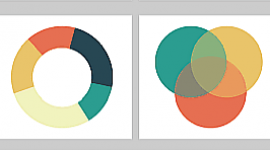August is the last full month of summer in the Northern Hemisphere. So, as we welcome it, let’s explore how the word August looks in different European languages and its etymology.
Two maps in this article show how August is written in different languages and European countries. The first map shows different language groups and is an interesting overview. The second map shows grouping based on the word etymology.
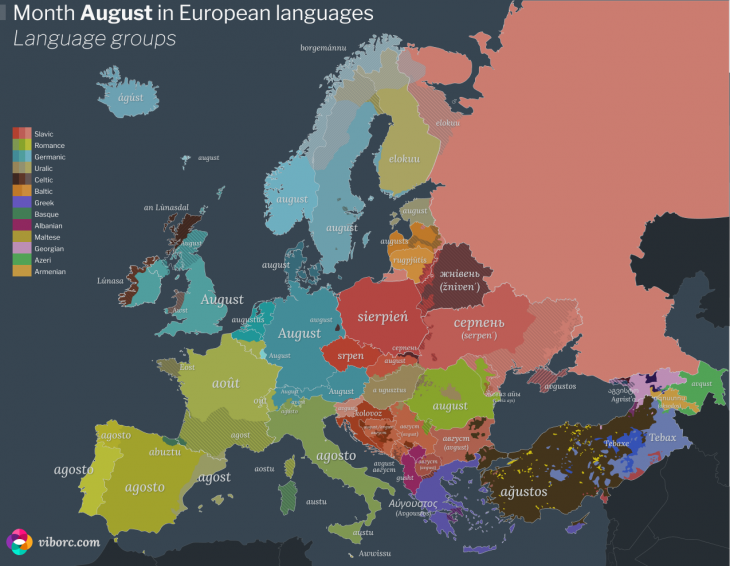
Common origin from Latin
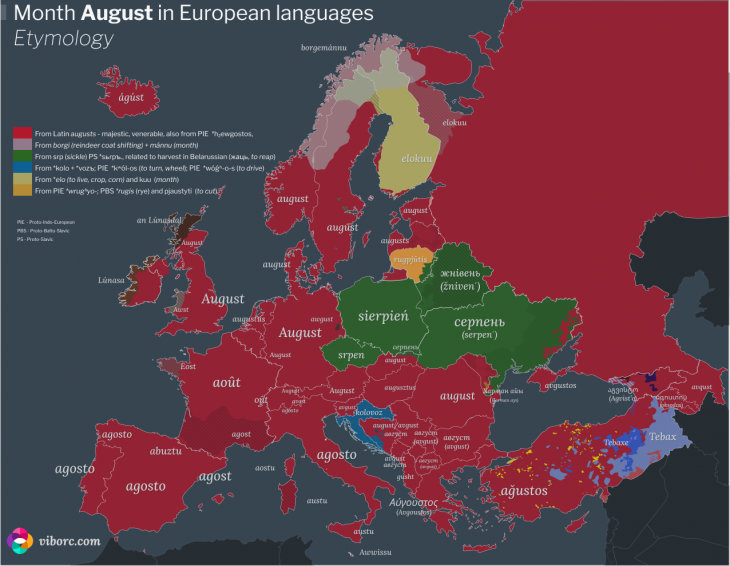
Most European languages share the same origin of the word. It comes from Latin augusts meaning majestic, venerable. The month itself was named after the first Roman emperor. Born as Gaius Octavius (an adoptive son of Gaius Julius Caesar), he got the title Augusts from the Roman Senate. To avoid confusion with his stepfather, he started using the name Augustus.
The vast majority of European languages use some variations of the word August. And that holds for languages across different language groups:
- English, German, Romanian – August, august
- Spanish and Italian – agosto
- Greek – Αύγουστος (Avgoustos)
- Serbian – aвгуст (avgust)
- Turkish – ağustos.
Even the languages around the Caucasus region follow suit.
- Georgian – აგვისტო (Agvist’o)
- Armenian – oգոստոս (oksodos)
- Azeri – avqust
However, other language groups have different words —notably Slavic and Celtic languages and Lithuanian.
August wasn’t present in the original Calendar of Romulus
Before calendar reform, the original Calendar of Romulus didn’t even mention August
The Calendar of Romulus
| English name | Meaning | Latin Name |
|---|---|---|
| 1. March | Month of Mars | Mensis Martius |
| 2. April | Month of Aphrodite | Mensis Aprilis |
| 3. May | Month of Maia | Mensis Maius |
| 4. June | Month of Juno | Mensis Iunius |
| 5. July | Fifth month | Mensis Quintilis |
| 6. August | Sixth month | Mensis Sextilis |
| 7. September | Seventh month | Mensis September |
| 8. October | Eight month | Mensis October |
| 9. November | Ninth month | Mensis November |
| 10. December | Tenth month | Mensis December |
Slavic languages
While several Slavic languages use some form of the word august (Slovakian, Slovene, Serbian, Bosnian, Bulgarian, Macedonian), others have gone their own way.
Croatian kolovoz comes from kolo (a wheel, a wagon) and voziti (to drive, to transport) and describes the fact that crops were harvested and driven from fields during this month.
Polish, Czech, and Ukrainian share a similar etymology. Their versions come from the word siecle (srp) – a tool used for harvesting crops. And while it’s not the same root, Belarussian жнівень (žniven′) comes from жаць, meaning to reap. It’s all about nature and agricultural activities in Slavic calendars.
Lithuanian and Finnish
The Lithuanian language also relates to agriculture. Its word rugpjūtis derives from PIE *wrugʰyo-; and PBS *rugis (rye) and the verb pjaustyti (to cut), which means the month in which the rye is harvested.
The Finnish language also describes agricultural practices. Their elokuu comes from elo- (to live, crop, grains) and kuu (month).
Celtic languages
Irish (Lúnasa) and Scottish Gaelic (an Lùnasdal) don’t have any relation to the word lune (moon). Instead, they are related to Lugh, an important figure in Irish mythology. He’s related to oaths, the act of swearing, the truth, and the law. Although its etymology is not completely clear, some linguists suggested that it derives from a PIE root *(h2)lewgh- (meaning, roughly “to bind by oath”).
Read more
Don’t stop exploring. You can also learn how the month of May is written in different languages in Europe. And if you want to learn about September and its origin and etymology, you can do that, too!
ABOUT THE AUTHOR
